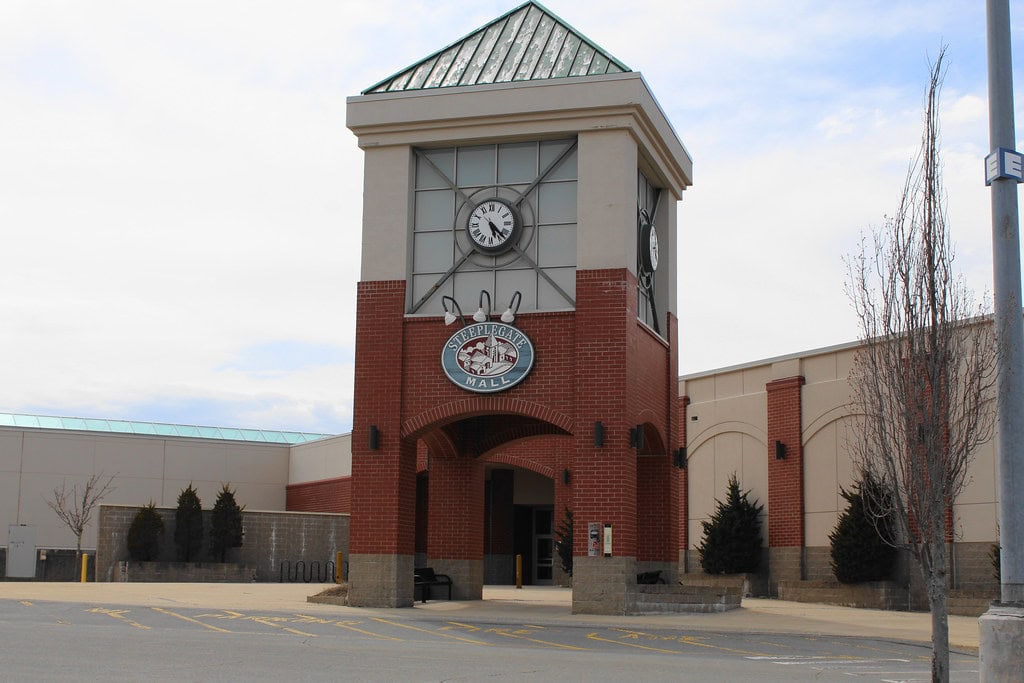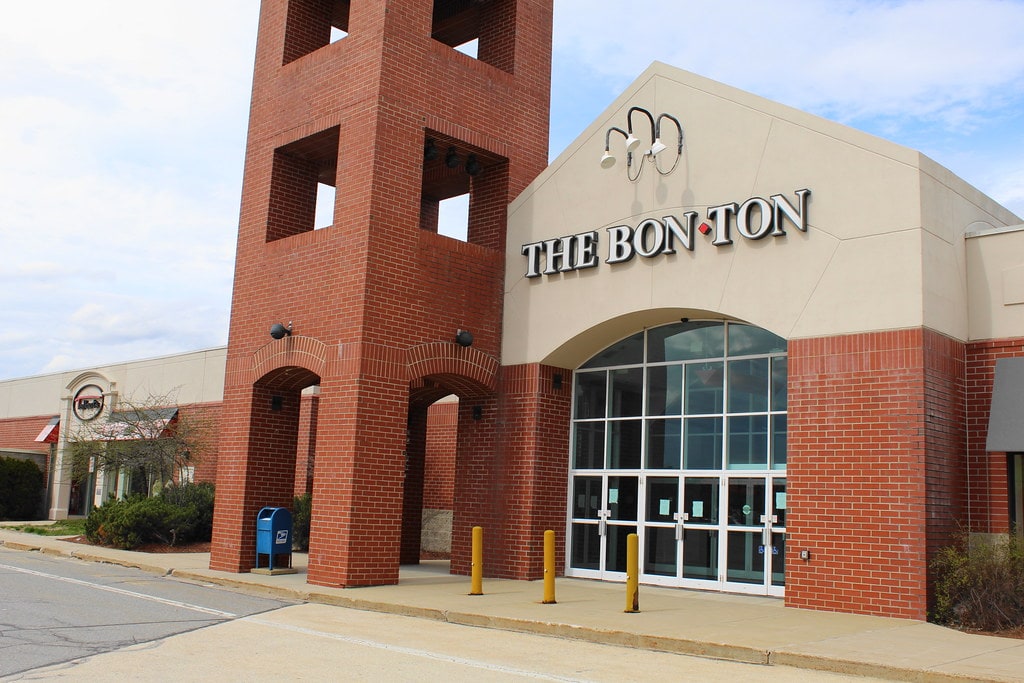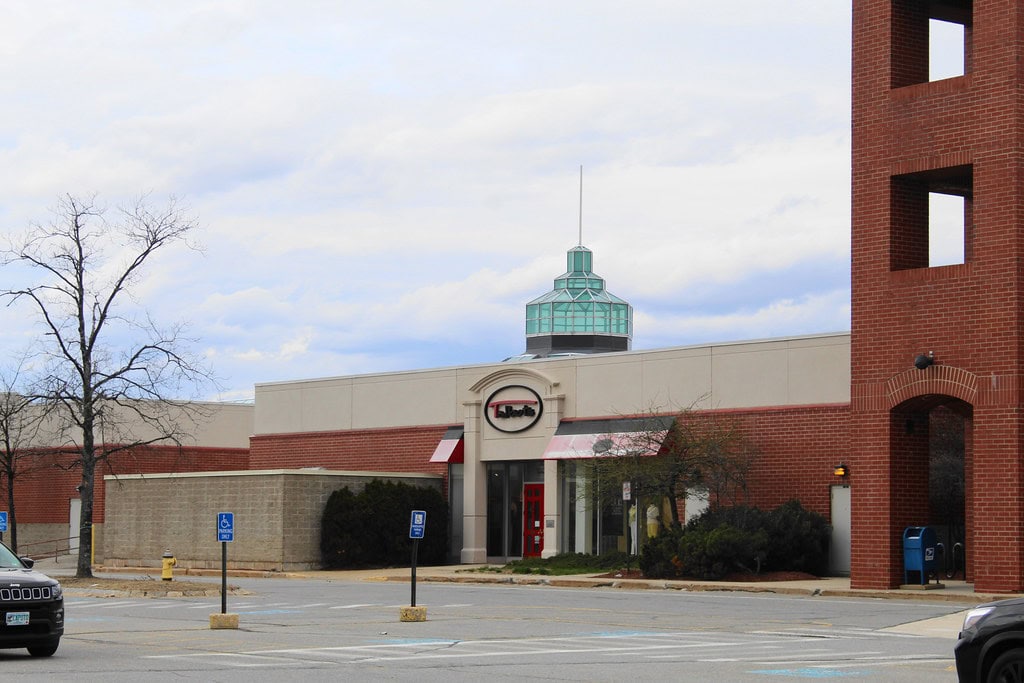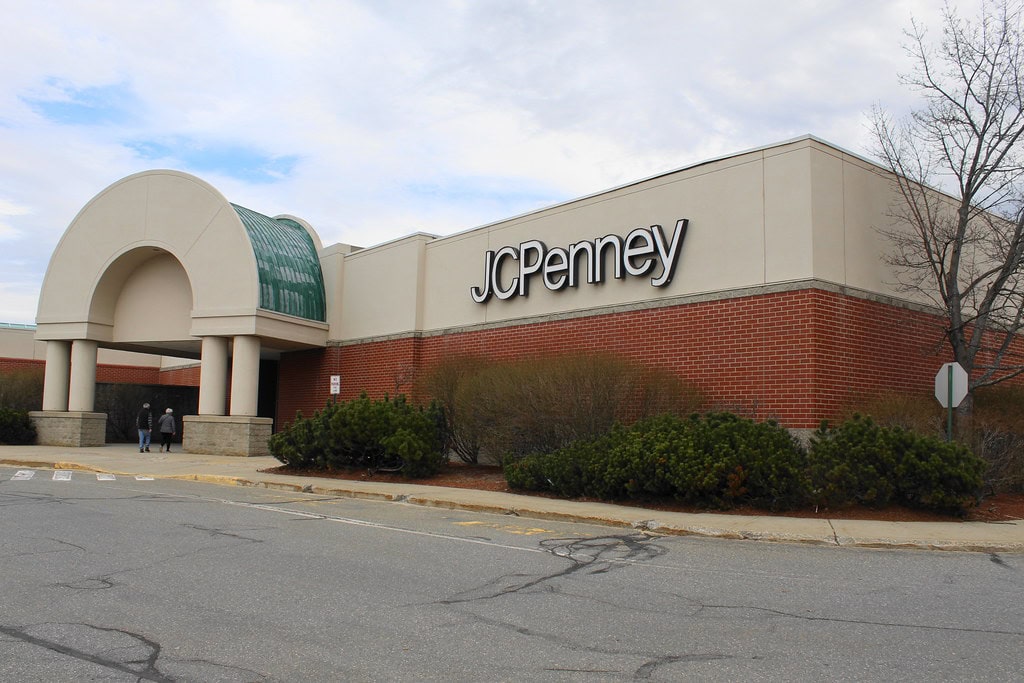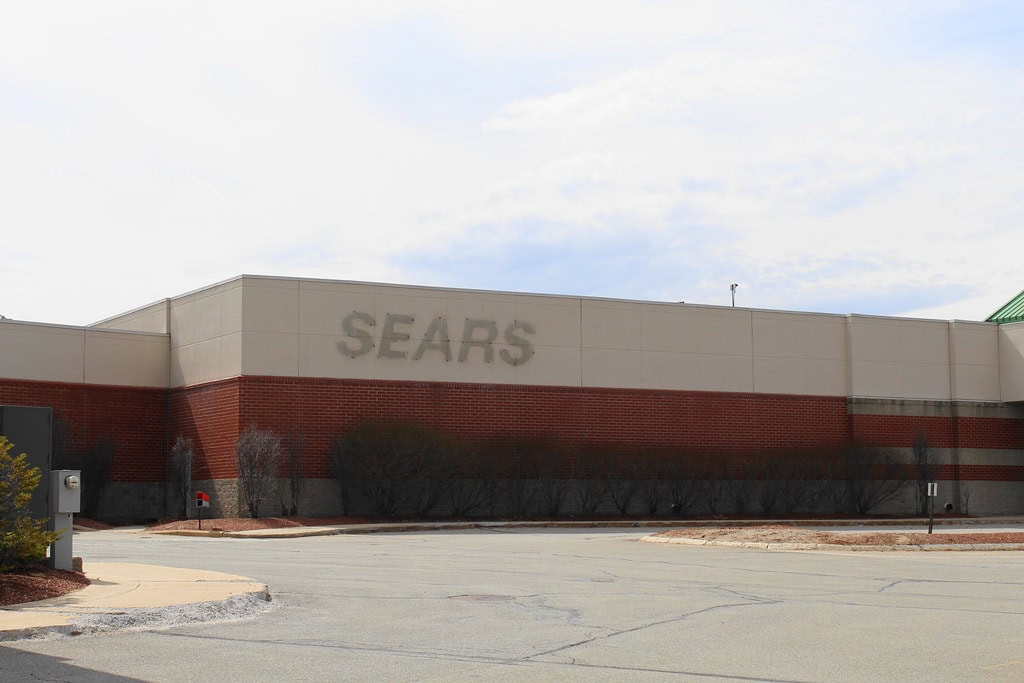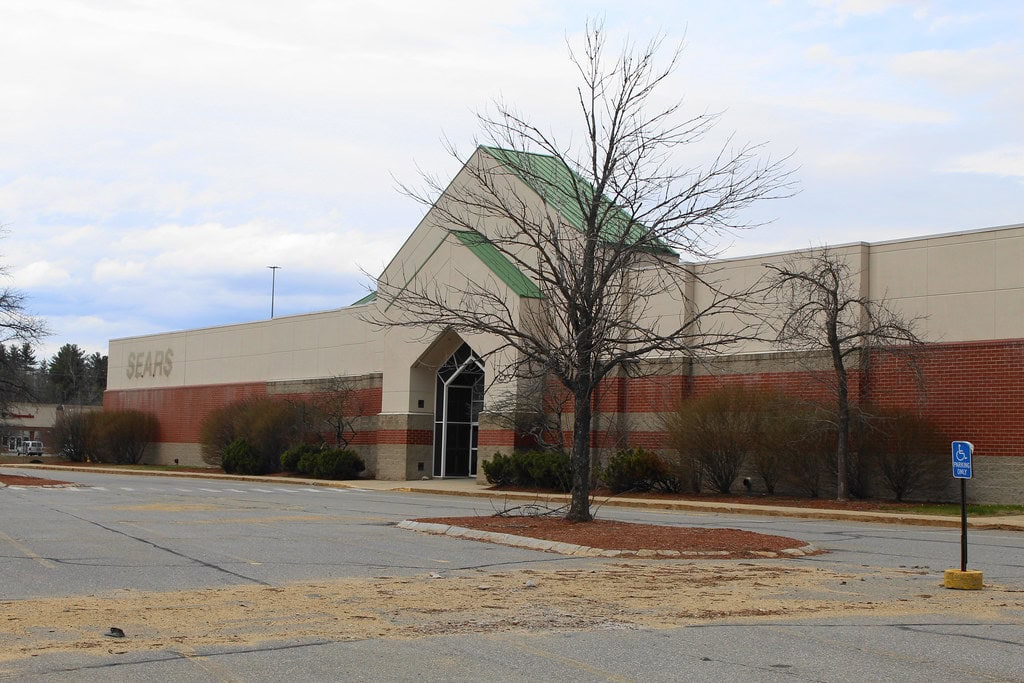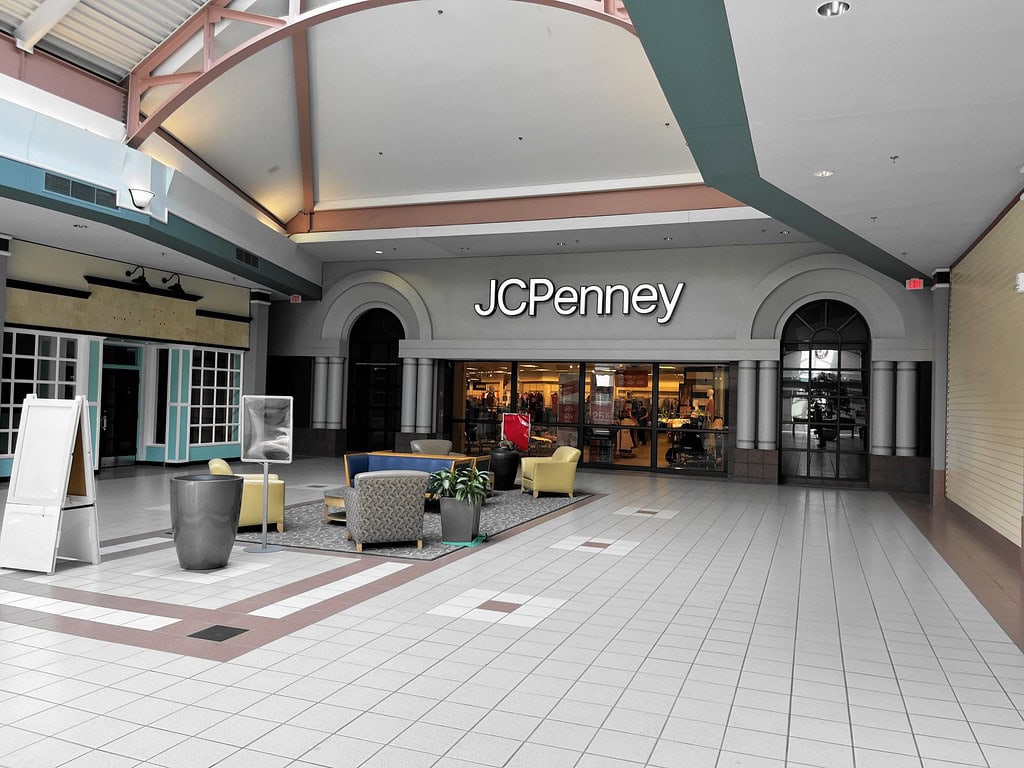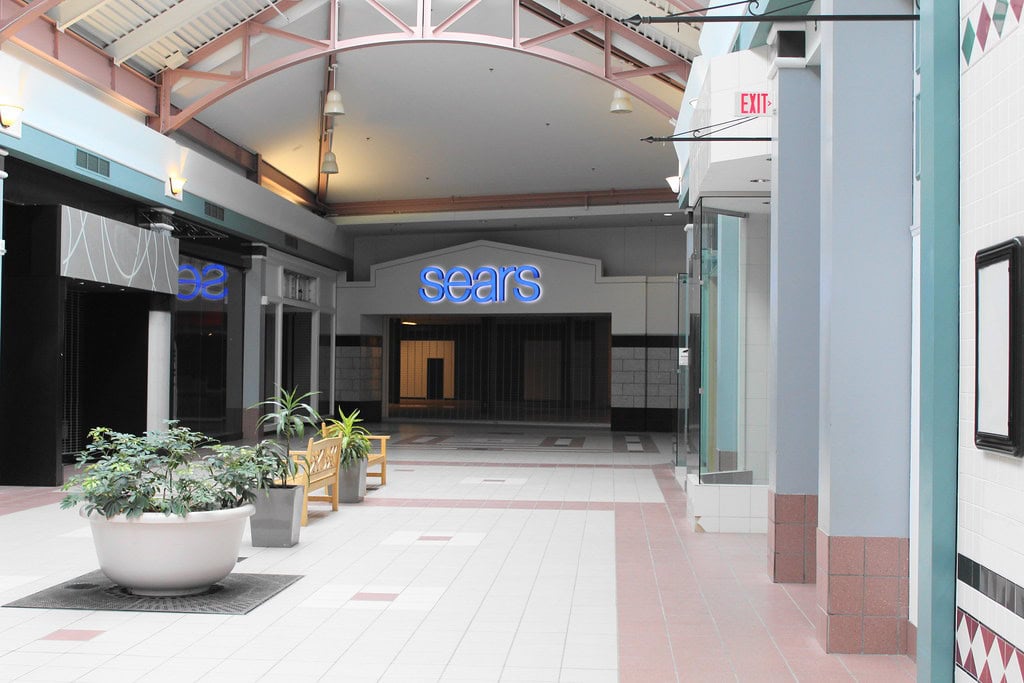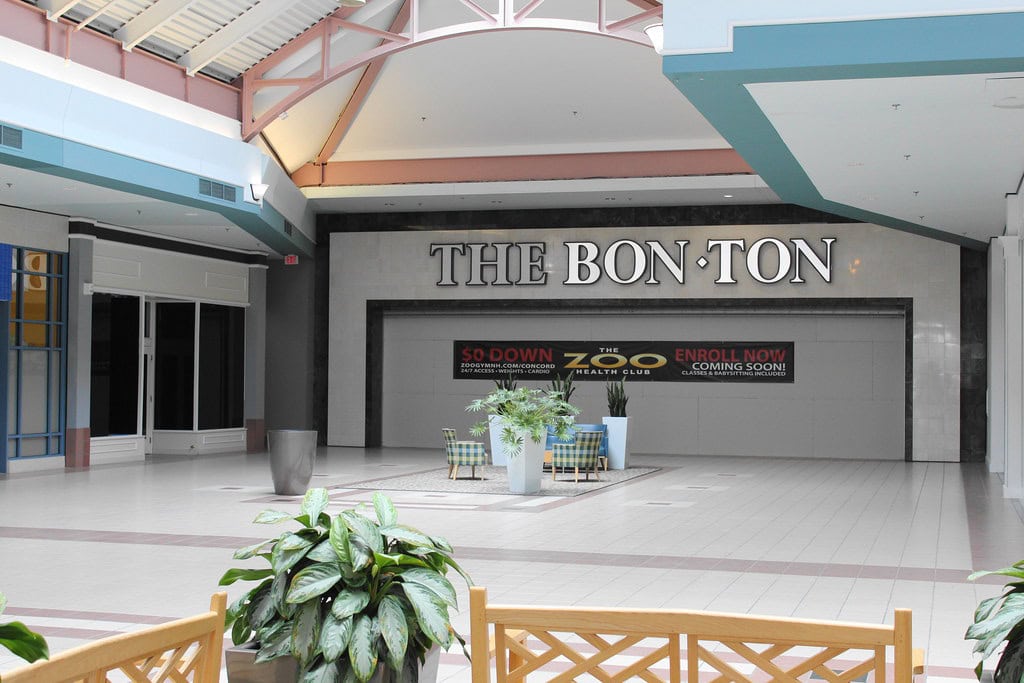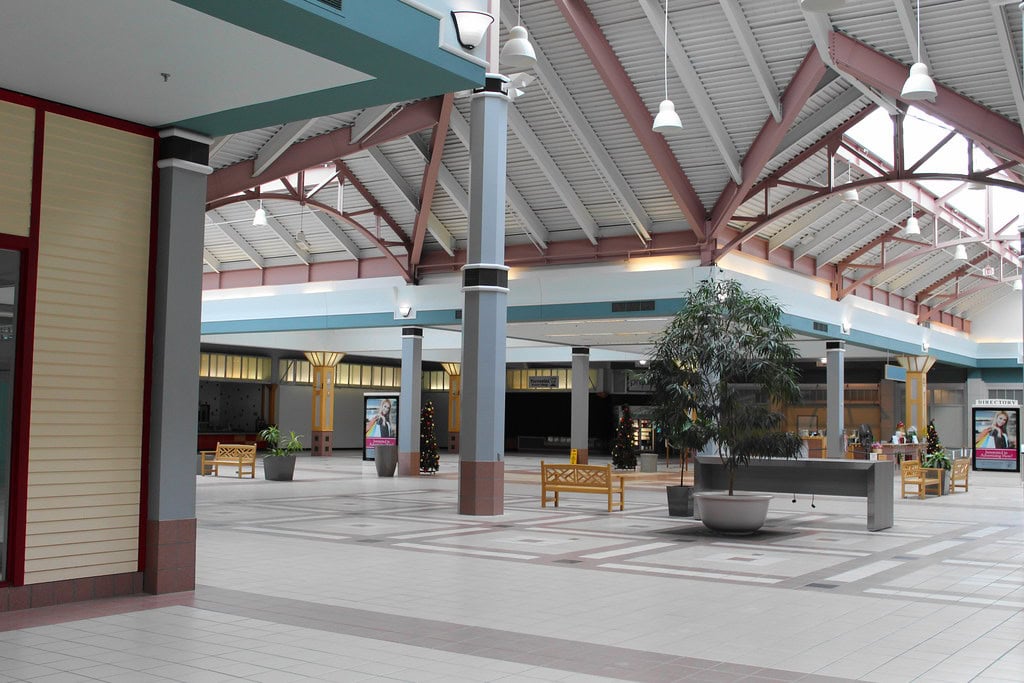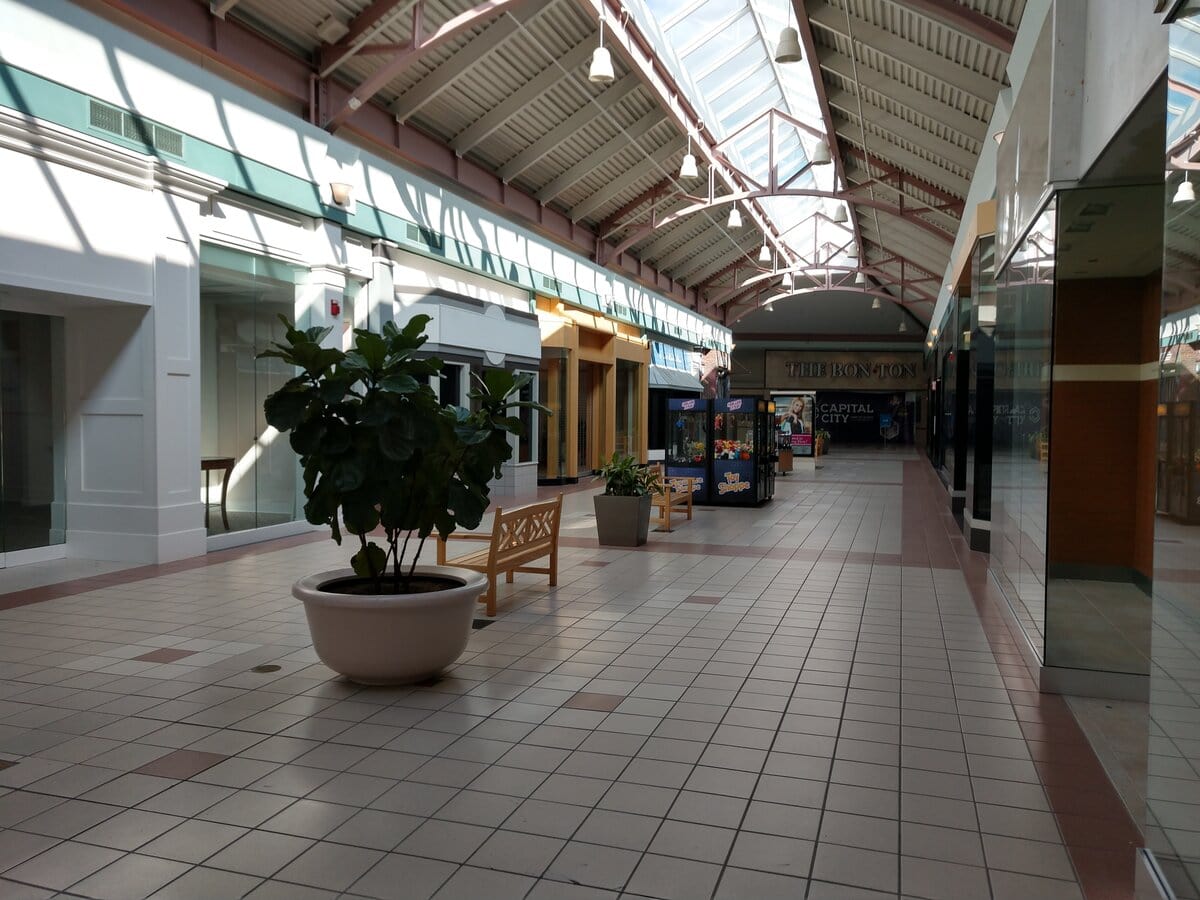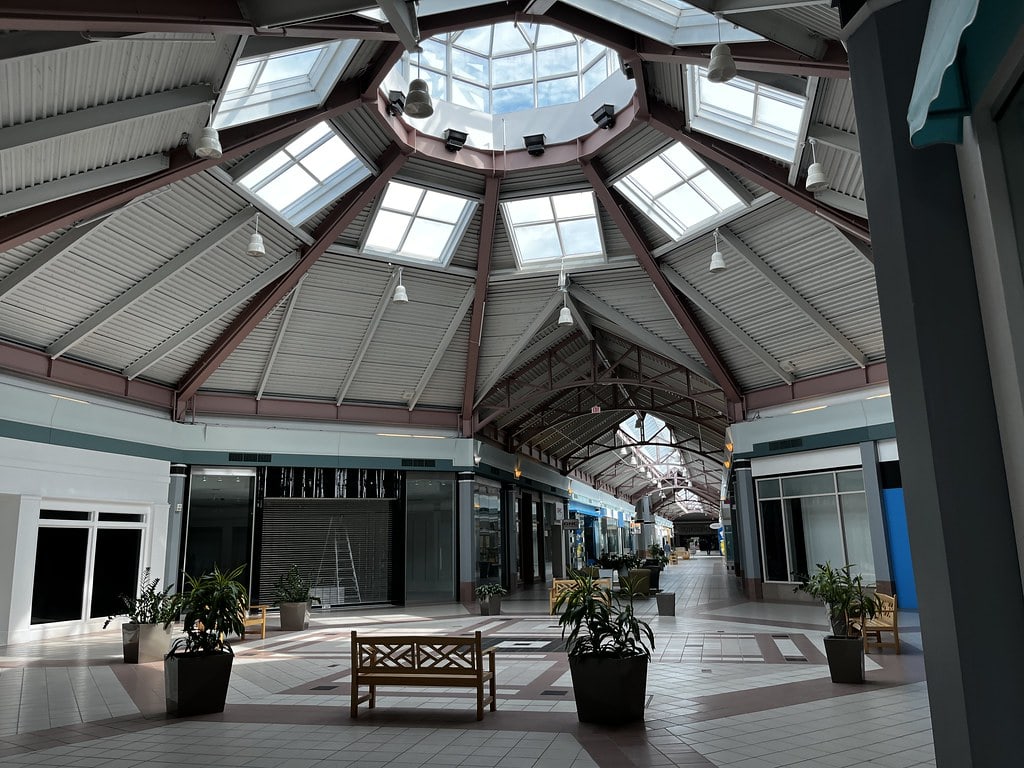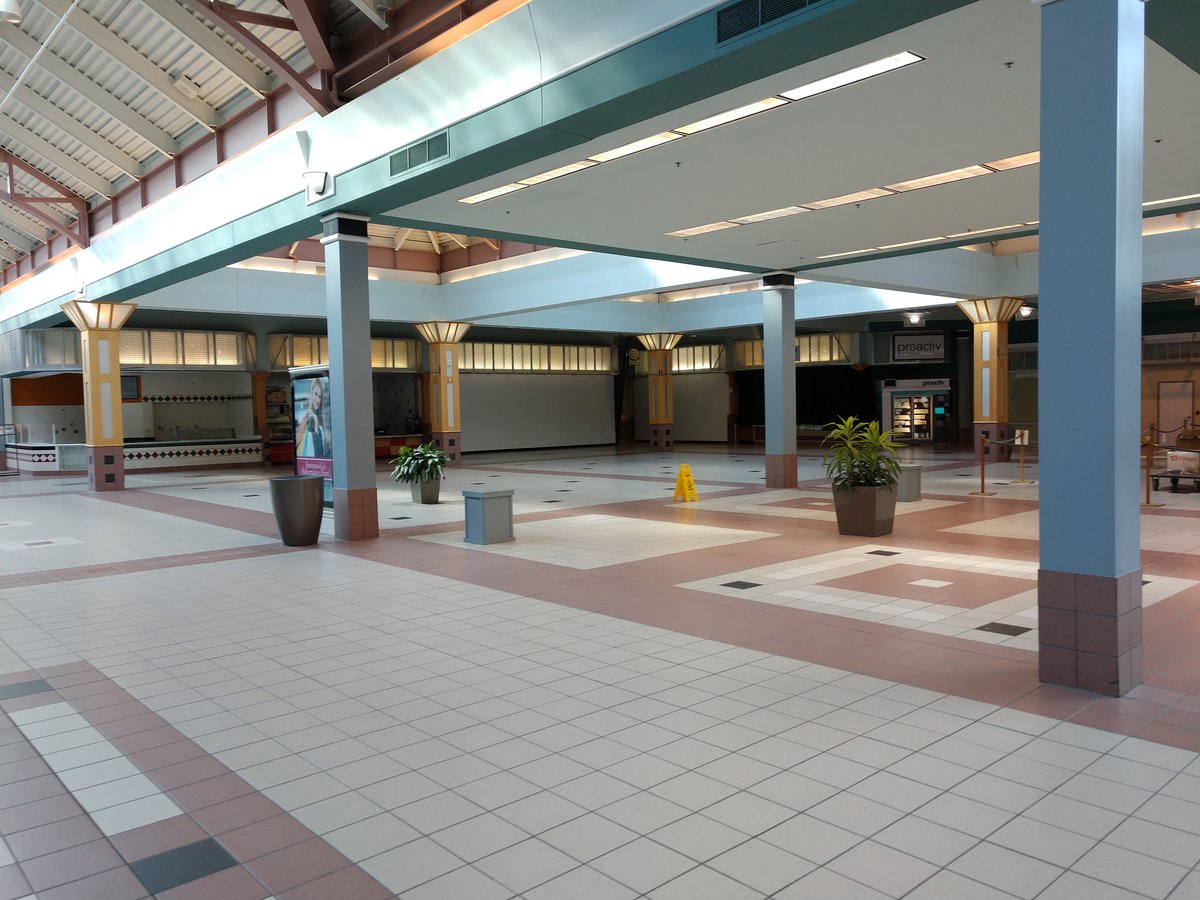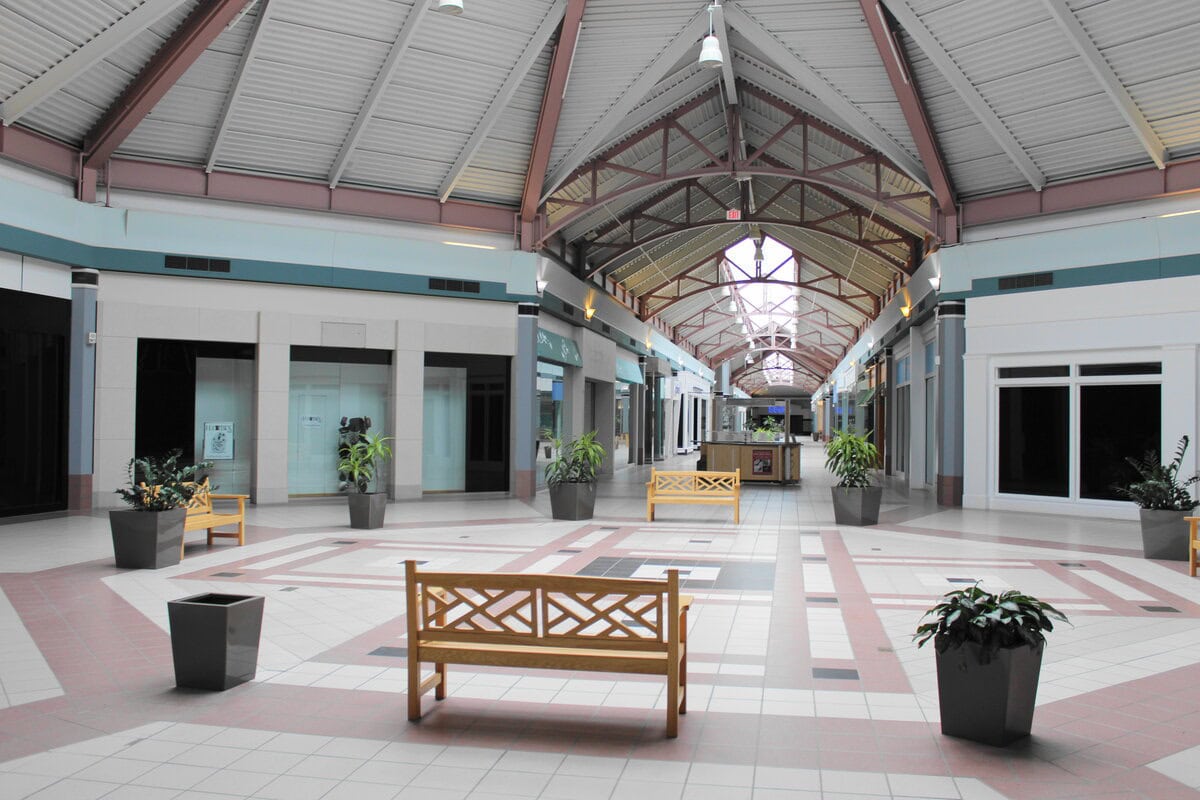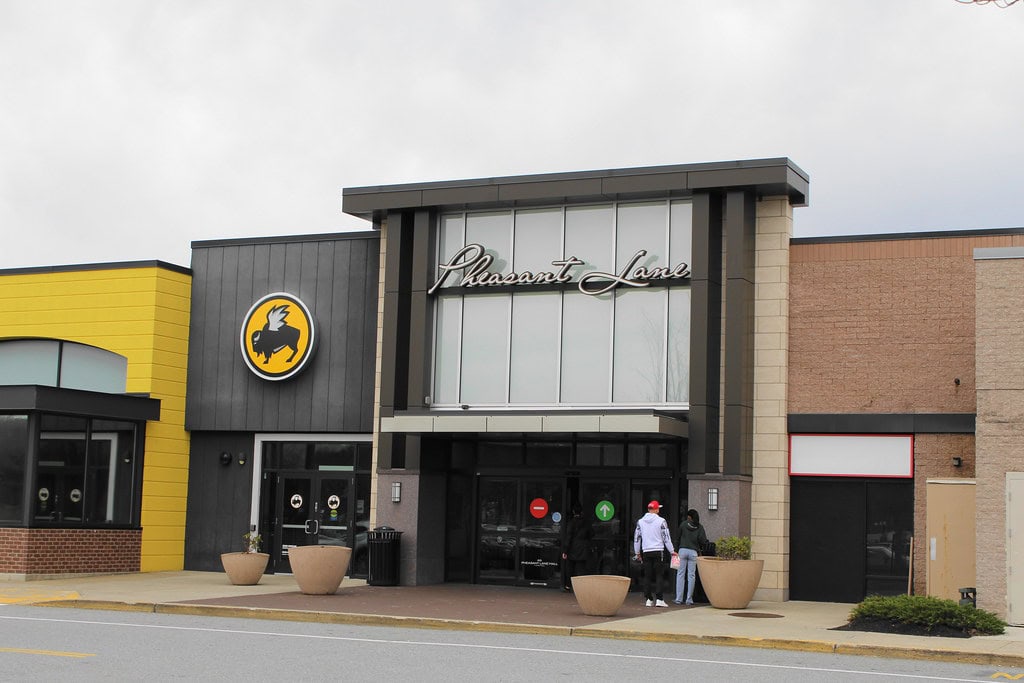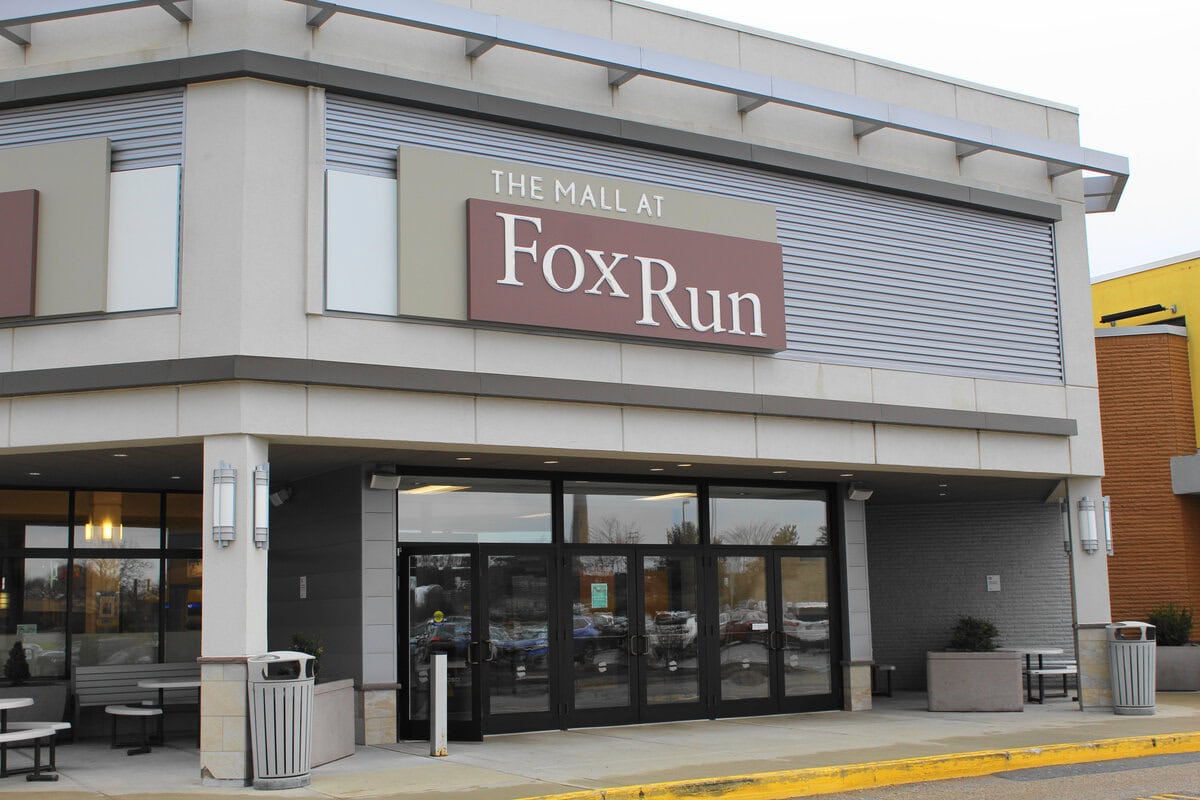Steeplegate Mall Opens Its Doors
On August 1, 1990, Steeplegate Mall opened at 270 Loudon Road in Concord. Homart Development Company built the 481,700-square-foot enclosed center for regional shopping.
Four anchors launched with the property: Sears, JCPenney, Sage-Allen, and Steinbach. A food court displayed a 630-square-foot mosaic, while about 62 storefronts were prepared for leases.
Visitors passed beneath the clock tower into the food court before walking the central concourse. The plan kept everything on one level, with department stores framing the mall.
Homart's design used a straightforward footprint.
Anchors occupied the ends of the structure, each serving as a draw for customers who would then walk past the smaller shops in between.
At the center, the food court marked a hub where the large mosaic formed a distinctive feature.
The clock tower above the main entrance provided an external marker visible from Loudon Road, directing customers into the enclosed corridor.
The opening lineup gave the project weight. Sears and JCPenney represented national chains with established followings.
Sage-Allen and Steinbach offered department store models tied to regional shoppers.
Inline tenants ranged across clothing, shoes, and gifts. The design created a balance between large anchors and smaller specialty shops.
Each piece was placed to feed into the next, with the food court as the midpoint.
Steeplegate Mall opened as a complete retail center, framed by four major stores and a concourse of flexible shopfronts.
Early Struggles and Anchor Shifts (1992–1999)
In 1992, the mall faced its first vacancy when Sage-Allen closed only two years after opening.
The space, built as one of the four corner anchors, remained empty for nearly seven years.
In 1999, The Bon-Ton arrived, ending the long gap.
The Pennsylvania retailer occupied the closed Sage-Allen location and became part of the mall with Sears, JCPenney, and Steinbach.
In the same year, Steinbach shut down after bankruptcy. The anchor space was divided, giving one side to Circuit City while The Bon-Ton expanded into the rest.
This created two Bon-Ton locations running side by side, which was unusual.
One sold clothing and the other centered on home items. Circuit City brought electronics to the mix and drew in a different crowd.
Through the remainder of the decade, Sears and JCPenney continued as the stable anchors while the other ends of the building changed.
By the close of 1999, Steeplegate Mall had seen two of its original four anchors replaced, leaving the property with a mix of traditional department stores and newer categories like electronics.
Attempts to Stay Relevant (2000–2010)
The early 2000s added new tenants to the mall. Old Navy opened in 2001, introducing a clothing chain aimed at younger buyers.
Electronics stores also started to change during this time.
Circuit City, which had taken part of the former Steinbach space in 1999, closed in 2009 after the chain entered liquidation.
Its closure marked the loss of one of the mall's few specialty anchors.
Inside the concourse, small tenants turned over frequently. National clothing brands and shoe outlets cycled through leases, while independent shops filled gaps left behind.
Inline vacancy became more visible as new competition grew along Loudon Road.
Old Navy stayed open, but Circuit City's loss left another major space unused.
The mall entered the 2010s past its peak, relying on its anchors while dealing with more closures and unstable tenancy.
Ownership Changes and Creative Uses (2011–2019)
In 2011, General Growth Properties shifted Steeplegate Mall to Rouse Properties, grouping it with other underperforming centers.
Three years later, Rouse defaulted on its loan, and by 2015, ownership passed to a lender consortium managed by Colliers International.
Old Navy, which had opened in 2001, closed in January 2015, leaving another anchor spot empty.
Soon after, Namdar Realty Group purchased the property in May 2016 for $10.4 million, beginning a new phase that relied less on national retail and more on alternative tenants.
That same year, Hatbox Theatre opened in the former Coldwater Creek space, repurposing adjoining areas for storage and rehearsal.
Also in 2016, VIP Bounce Houses and Laser Tag filled the old Old Navy spot, turning it into a family entertainment venue.
By 2018, the two Bon-Ton stores closed as part of the chain's nationwide downsizing.
The former men's and housewares location briefly became home to Capital City Charter School, which operated until 2020.
Later in 2018, Altitude Trampoline Park opened in the former Circuit City space, while in 2019, The Zoo Health Club launched in the women's and children's Bon-Ton store.
That year also saw the departure of True Confections Candies & Gifts. This longtime tenant left after citing high rent and low traffic.
Anchors Collapse and Interior Closes (2020–2022)
On February 6, 2020, Sears shut down its Steeplegate Mall location, part of a nationwide plan that closed 96 stores.
The closure left JCPenney as the only traditional department store.
The former Sears space soon took on a temporary role.
State officials repurposed the vacant anchor into a vaccination site, using its large floor area for public health operations during that period.
By February 2022, the mall's owners told the few remaining interior-only tenants to leave. On April 22, the concourse itself closed, ending interior access for shoppers altogether.
From that point forward, only businesses with outside entrances stayed open.
JCPenney operated alongside Talbots, Chico's, Hatbox Theatre, The Zoo Health Club, and Altitude Trampoline Park.
Later that year, on December 8, All-Stars Pickleball Club launched in the former Old Navy space, bringing another unconventional use to the property.
By the end of 2022, the enclosed interior no longer functioned as a retail corridor, with activity limited to those tenants that could be reached directly from the parking lot.
Sale to Onyx and Demolition Plans (2023–2024)
In 2023, Namdar Realty Group sold Steeplegate Mall to Onyx Partners Ltd. for $18 million.
Onyx outlined plans to demolish most of the structure and the adjoining Regal Cinemas, replacing them with 625 apartments and new retail space.
Regal Cinemas screened its final show on April 18, 2024, clearing the way for redevelopment. Notices went out to tenants that same year, requiring most to vacate by January.
Only JCPenney, The Zoo Health Club, and Altitude Trampoline Park were allowed to remain because of long-term leases.
By June 2024, abandoned areas of the mall drew urban explorers. Some caused damage, leading to police arrests.
The owners responded by fencing off the property and boarding entrances to keep the public out.
Onyx submitted a partial demolition request on June 18, 2024, which the Concord Planning Board approved on July 17.
Progress stalled soon after when a lawsuit arose over a parcel containing a TD Bank branch on the mall's edge.
The dispute was resolved later in 2024 when Onyx bought the parcel for $2.5 million, ending the legal barrier but leaving the broader demolition still on hold.
Court Fights and Uncertain Future (2025)
In April 2025, JCPenney's real estate group went to court against Onyx Partners, saying demolition violated the lease.
A judge granted a temporary restraining order, stopping work until hearings took place.
JCPenney and Onyx told the court they were close to reaching an agreement, though no details were released.
The lease had been extended through July 31, 2030, leaving JCPenney with long-term control of its space.
On May 3, 2025, a fire broke out in a camper parked at the site.
Investigators later ruled the cause accidental, but the event added new attention to the stalled property, already fenced and boarded as demolition delays dragged on.
In July 2025, the Concord Planning Board granted Onyx an extension of its demolition permit. Leaders weighed public funding options for redevelopment.
In September 2025, JCPenney, The Zoo Health Club, and Altitude Trampoline Park continue to operate inside a site caught in legal and redevelopment limbo.

